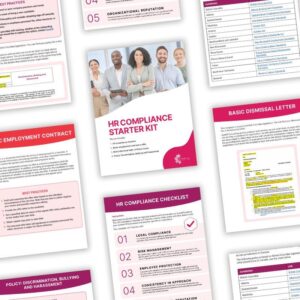As we embark on Fall, which for many symbolizes a time of renewed focus and energy in our businesses, we’ll share some of the leadership learnings from “The Diary of a CEO”! On a personal and professional front, August was an intentional month of cultivating play and relaxation. This meant checking out! That’s right! An entire month of “I’m out of the office!”. It was 31 days of living what Brene Brown calls a “wholehearted life” where we prioritize recharging our minds and hearts.
It’s incredible how these “checking out” times result in some of the best ideas and total clarity of the once-muddied waters. It also amazes me how we discover newfound learnings when we least expect it! On returning from vacation abroad, I was on a flight and found a series called “The Diary of a CEO” to kill time. Two episodes, in particular, featured Simon Sinek! As I listened, I frantically took notes of the genius Simon-isms!

Below are thirteen leadership lessons learned from Simon Sinek and our thoughts from #upskillhr on each:
-
- “Replace judgment with curiosity.” As leaders (and as human beings), we jump to conclusions and judge without knowing or digging for the truth. Don’t rely on what you think or what others say. Be curious and ask questions.
- “Truth doesn’t have to be brutal; it just has to be true.” We can be honest AND be kind while relaying it. Brutal honesty defeats the intent of giving feedback or sharing hard truths. When in difficult conversations, show up with empathy and choose words that are clear yet kind.
- “We mistake being honest with being honest now! Make sure conditions are better so that the message is received.” Timing of delivery matters. We’ve done it or have seen others do it! We shoot from the hip; we say what’s on our mind NOW. Rarely does it result in a win-win situation. Be mindful of when you choose to engage in a difficult conversation.
- “One of the biggest skills in helping others is learning how to listen … We confuse listening with hearing the words spoken. Listening is when the other person feels heard, and you are in pursuit of hearing, not just the words spoken.” Listening is a skillset we often don’t learn, yet I would say that most leaders I meet rank their ability to listen as strong. Listening isn’t the ability to paraphrase what someone says; it’s about being fully present in the conversation and picking up on words spoken and, most importantly, words unspoken. It’s an art and one that I believe is a gap for many.
- “With rank, you do set the tone.” It starts at the top. We can’t hold our team members accountable for behaviour we don’t exhibit ourselves. Be consistent in how you show up and stay true to what you want to be and who you aspire to be. Model it, and others will follow.
- “The great resignation is an indictment on decades of substandard workplace culture and poor leadership.” Having a workplace culture that’s fine or okay just won’t cut it anymore. The pandemic has resulted in people finding clarity on what they want and don’t want from their workplaces, careers, leaders, etc. They have a choice, and it’s imperative that workplaces continually work at creating a better workplace and demonstrate a keen desire to work at it relentlessly.
- “It takes just one person to see the spark in us to help us see the spark in ourselves.” I have been lucky enough to have had leaders who have been instrumental in my career. They are few and far between, though. Be the leader you wish you had. Every encounter with a team member should be your opportunity to engage with them, learn about them, and help them grow, learn, and achieve greatness. Be the pillar of support others need. Trust me – they’ll never forget what you did for them!
- “Great cultures are organized to advance something bigger than themselves. They’re not just fun places.” It’s not about the pool table, events you organize, fancy lunches, etc. Great cultures are built on deeper relationships, meaningful work, open communication, core values and an unwavering commitment to respect, trust, and support of one another. The rest is the cherry on top!
- “Companies must be honest about the type of culture they have.” Don’t lie or embellish what you know doesn’t exist. Speak truthfully about your workplace culture. Be upfront with prospective new hires and new hires alike. It’s far more desirable to work for a company that knows that they have work to do and are honest about where they are today and where they hope to be than work for a company that has their blinders on, utterly oblivious to what is happening within their workplace. Dishonesty only condones and fuels poor leadership and toxic cultures.
- “Teaching people to have uncomfortable conversations is required. It’s a skillset, and it’s a gaping hole.” Whether a leader or not, people are afraid to engage in difficult, messy conversations. Getting comfortable with uncomfortable discussions is a skill and must-have skill, especially when entrusted as leaders. Conflict is inevitable, and giving tough feedback also is. Engaging in the conversation rather than avoiding it will result in garnered trust, dissipated emotions, faster recovery from conflict and improved overall team dynamics and performance.
- “Go on. Tell me more. What else?” As leaders, these are three powerful ways to engage in conversation, show up for others empathetically, and gain a deeper understanding of what is happening vs. what we think is happening. Give space for others to speak up and share. If you’re noticing a quiet culture, it’s time to encourage dialogue – “Go on. Tell me more. What else?” Start there!
- “Helping someone and success is a team sport.” As cliché as it sounds, shifting from me to we is where the magic happens. We don’t move the needle as a team when we operate in solos or only in the best interest of our personal needs. We then wonder why we’re stagnant, why there’s so much infighting or conflict, and why we can’t get to the finish line. Seeing work, activities and successes as a team sport allows you to become an inclusive leader focused on others – a shift from self-serving to serving others.
- “We need to teach how to have social interactions and human skills at work.” The focus is often technical skills, and the mastery of technical skills gets us into the covenant positions of Manager roles. Once promoted, we may be technically sound at what we do, but we often need to be equipped to handle the people side of managing others. This leap into leadership is often a sink-or-swim. Learning to interact with others, relate to people, and demonstrate human skills in every encounter is critical. Technical skills only get us so far. Remember, how we treat our people will result in how well we perform as a company.
What stands out for you? What quotes hit home? How will you translate these learnings into sharpening your “human skills” or leadership execution?

At Upskill Consulting, our HR consulting, training, and coaching revolve around upskilling the team, regardless of title, to demonstrate sharpened leadership or power skills in pursuing a healthier workplace culture, stronger dynamics, and overall individual and team success. If you’re ready for support in HR and training, visit www.upskillconsulting.ca to learn more about what we do and offer. To book your free consultation, visit: https://upskillconsulting.ca/contact/
If you’re looking to set your business up for success quickly and easily with expertly-created HR templates, look no further. https://upskillconsulting.ca/shop/

- Trust First, Feedback Second: Why Connection Comes Before Correction - June 1, 2025
- The Not-So-Fluffy Truth About Connection in Leadership - May 2, 2025
- Small Changes, Big Impact: The Case for Micro Shifts in Leadership - April 7, 2025

